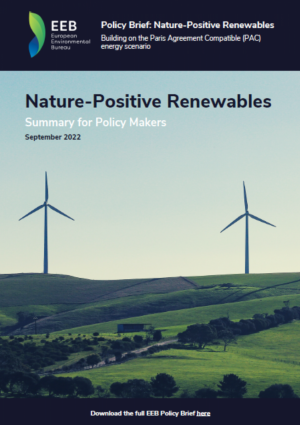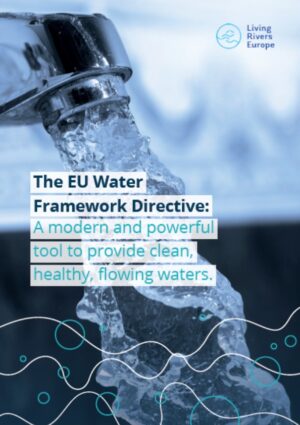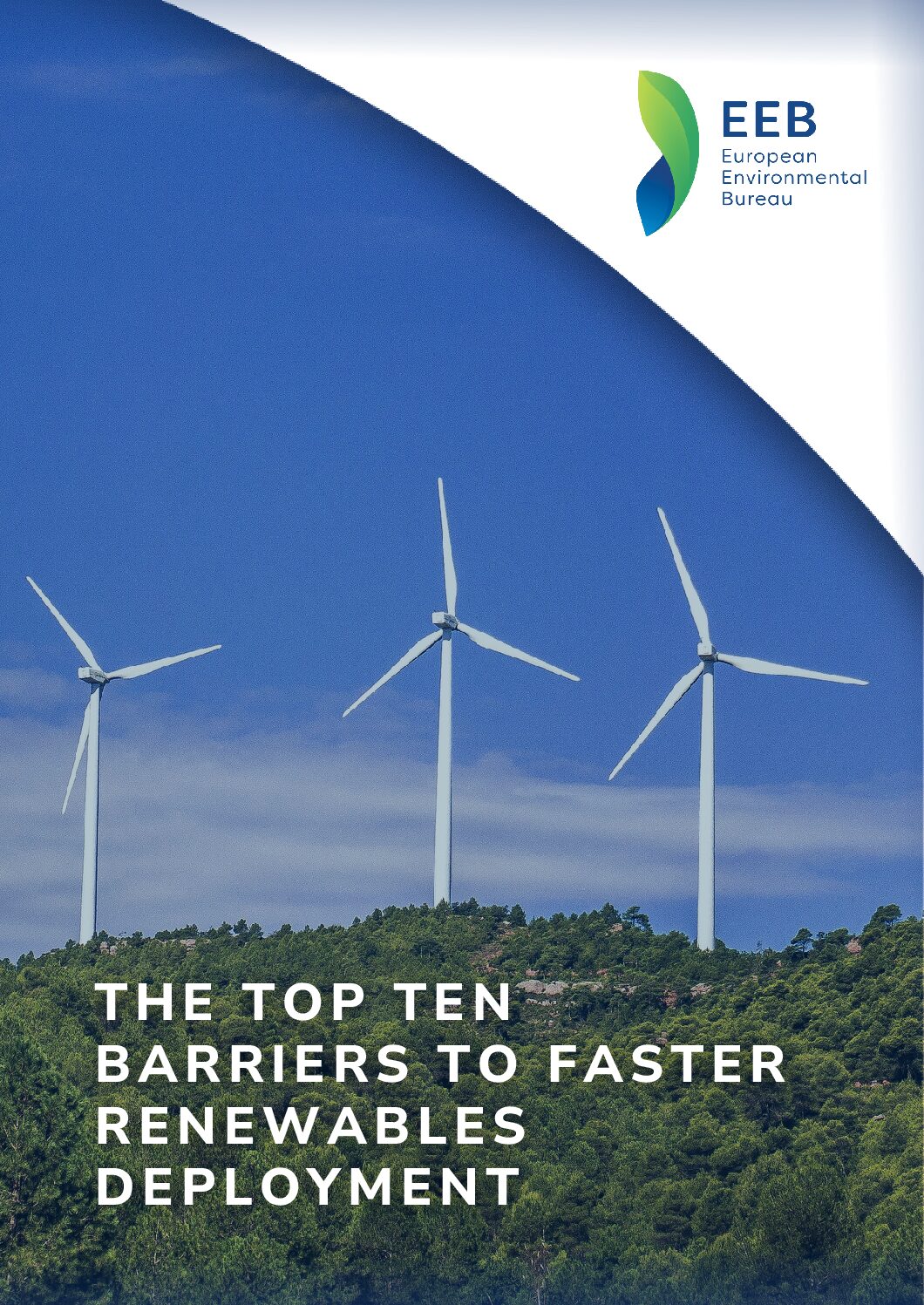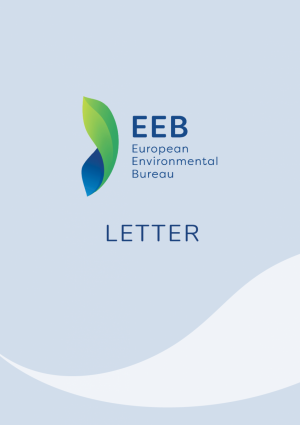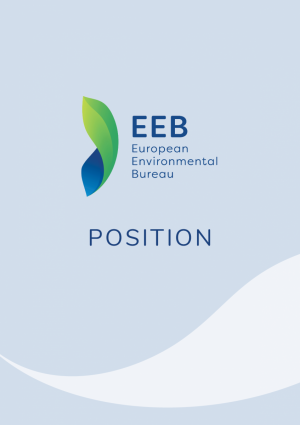
Nature-Positive Renewables: Summary for policy makers
This paper explores how to carry out the energy transition at the least environmental cost. Building on results from the Paris Agreement Compatible (PAC) scenario – a modelling exercise developed by the EEB and CAN Europe under the banner of the PAC project – we highlight the importance of deploying renewable energy capacity in full respect of ecosystems and biodiversity, also touching on raw materials procurement and social challenges. We further emphasise how the success of the energy transition will rely on scaling up renewable energy capacity while at the same time reducing energy and material consumption through increased energy efficiency and sufficiency, but also by means of enhanced circularity in the use of resources and products.
This policy brief outlines the challenges and potential solutions related to a broad spectrum of environmental and social impacts of different renewable energy technologies. It also suggests corresponding policy recommendations for EU policymakers to guide the renewable energy roll-out in harmony with nature protection and within environmental and social boundaries across Europe and beyond.

